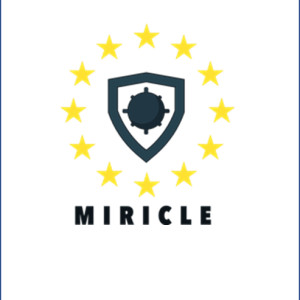 \
&
Contact us
\
&
Contact us
 \
&
Contact us
\
&
Contact us
Starts in 2 weeks from now
LocationThe Square and online
The registration for the European Research and Innovation Days (R&I Days) sixth edition, organised by the European Commission on 16 and 17 September 2025 (onsite in Brussels and online) is now open.
Since 2019 this event brings together policymakers, researchers, business leaders and the wider innovation community to discuss how research and innovation drives Europe’s competitiveness, sustainability and industrial leadership, underpinning the EU’s top priorities.
This year’s edition, “Together, towards a Research and Innovation Union”, will come at a pivotal moment of discussions on the EU’s next long-term budget and key policy actions such as the Startup and Scaleup Strategy, the European Life Sciences Strategy (more information on the consultation which closes on 17 April 2025 here), the AI in Science Strategy and the European Innovation and European Research Area Acts.
All information related to the R&I Days (programme, sessions, speakers, registration …) can be consulted in the run up to the event on this webpage. Subscription to their newsletter is possible here.
We offer news and event updates, covering all domains and topics of Horizon Europe, Digital Europe & EDF (and occasionally, for ongoing projects, Horizon 2020).
Stay informed about what matters to you.
By signing up, you can opt in for e-mail notifications and get access to
a personalised dashboard that groups all news updates and event announcements in your domain(s).
Only for stakeholders located in Flanders

The Miricle project, ‘Mine Risk Clearance for Europe’, obtained funding under the European Defence Industrial Development programme call ‘Underwater control contributing to resilience at sea’. The main objective of the project was to achieve a European and sovereign capacity in future mine warfare and create a path for the next generation ‘made in Europe’ countermeasure solutions. In order to realise this objective, Miricle addressed various stages: studies, design, prototyping and testing. These stages inter alia included the successful testing of an XL Unmanned Underwater Vehicle, a protototyped mine disposal system and multiple innovative systems to detect buried mines. Flanders Marine Institute (VLIZ), was one of the five Belgian partners in the consortium. Within the project, VLIZ was able to forward its research on the acoustic imaging of the seabed to spatially map and visualize buried structures and objects - in this case buried mines - in the highest possible detail. VLIZ also led the work on ‘Port and Offshore Testing’, building on the expertise of the institute in the field of marine operations and technology.